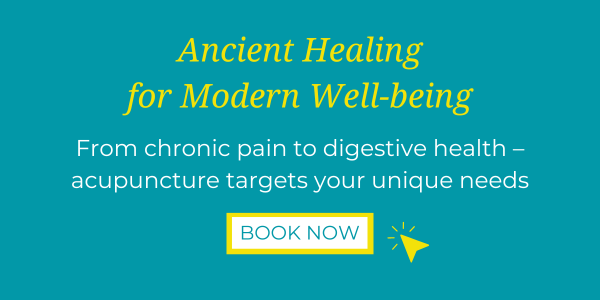Discover How Acupuncture in Kissimmee Enhances Senior Health
Acupuncture has been around for thousands of years, yet even today it’s shrouded in some mystery. We hear about thin needles placed at strategic points on the body, but how can that possibly help with chronic pain or even stress? It might sound strange if you’re accustomed to Western medicine, but acupuncture has gained respect as a complementary therapy, even finding its way into respected medical centers. Acupuncture is a form of alternative medicine that involves stimulating specific points on the body.
How Does Acupuncture Work?
Acupuncture comes to us from Traditional Chinese Medicine (TCM). This ancient practice is built around the concept of “qi,” a vital energy or life force that flows through pathways in the body called meridians. TCM practitioners believe that when qi is blocked or imbalanced, it leads to illness.
By inserting hair-thin needles into specific acupuncture points, practitioners aim to stimulate and rebalance the flow of qi, restoring harmony and promoting healing. While this is how TCM explains acupuncture, Western medicine offers some insights, too. A 2017 review found that many acupuncture points are located at sites where stimulating them can affect the activity of sensory neurons.
Stimulating Healing Through the Nervous System
Think about how rubbing a sore muscle can help it feel better. Acupuncture needles, when strategically placed, are thought to act in a similar way but on a deeper level. Stimulating these points through needle insertion may cause the body to release its own natural pain-relieving chemicals, such as endorphins.
It might also affect the way pain signals travel through your nerves to your brain, disrupting the way your brain perceives pain. There’s also growing evidence to suggest that acupuncture affects the autonomic nervous system, which regulates vital functions like breathing, heart rate, and digestion.
Acupuncture has been shown to influence the release of neurotransmitters involved in regulating stress, mood, and inflammation. It might even influence blood flow to different areas of the body, which would also contribute to healing.
What Can Acupuncture Treat?
While acupuncture isn’t a miracle cure-all and while scientific studies on its effectiveness are still ongoing, it’s used to help manage a range of conditions, often alongside conventional treatments. Many people turn to acupuncture for chronic pain. This can include low back pain, neck pain, headaches, medically reviewed arthritis pain, and even fibromyalgia, a complex disorder characterized by widespread musculoskeletal pain.
A 2018 meta-analysis analyzed data from numerous studies on acupuncture for chronic pain. They found compelling evidence that this ancient practice can actually reduce pain in ways that go beyond the placebo effect. Acupuncture is considered safe when performed by a qualified healthcare provider using sterile needles.
A Natural Approach to Managing Headaches
If you suffer from headaches or migraines, you know just how debilitating they can be. Millions of people seek natural ways to manage their head pain. Many turn to acupuncture to help manage headaches.
Research has found that regular acupuncture treatments may reduce the frequency and intensity of both migraines and tension headaches. It can even be as effective as preventative medications, but with fewer side effects. This aligns with Traditional Chinese Medicine’s principles that many headaches are caused by blocked qi or energy flow, especially in the head and neck area.
By targeting acupuncture points along these pathways, the needles help restore the balance and alleviate headache pain. You can also practice acupuncture for other health conditions as well.
Beyond Pain: How Acupuncture Might Surprise You
You might be surprised to know that acupuncture’s potential benefits go beyond pain relief. The National Center for Complementary and Integrative Health (NCCIH) suggests it may offer help in the treatment of:
- Osteoarthritis: Studies have shown that acupuncture can reduce pain and improve functionality for individuals struggling with OA in their knees.
- Nausea and Vomiting: Acupuncture, especially a form called auricular acupuncture, where needles are placed in the ear, has proven effective for easing post-operative nausea. It’s even used to reduce chemotherapy-related nausea, which is important for anyone going through cancer treatments.
- Allergic Rhinitis (Hay Fever): Studies suggest that acupuncture might relieve symptoms of allergic rhinitis, making it easier to manage those seasonal allergies. This again comes back to TCM’s view that acupuncture helps to rebalance the flow of qi, which, when disrupted, could contribute to allergies.
- Mental Health: It’s becoming more and more apparent that acupuncture may play a role in improving emotional well-being. Research shows promise in reducing symptoms of anxiety, depression, and even insomnia. This may be due to acupuncture’s ability to affect those same neurotransmitters involved in mood and stress mentioned earlier. It may also encourage the body to produce those natural pain relievers, those feel-good endorphins. Some researchers even propose that acupuncture could have positive effects on sleep quality by influencing hormonal balance.
There are many acupuncturists that have experience treating a wide array of conditions.
FAQs About Acupuncture
What Does Acupuncture Actually Do?
In simplest terms, acupuncture involves the insertion of very thin needles into specific points along the body’s meridians, which stimulates the nervous system to rebalance the flow of “qi” (vital energy), promoting healing, and reducing pain and other ailments. The insertion is usually painless, as the needles used are extremely thin.
What Is Acupuncture Therapy Used For?
While many associate acupuncture with pain relief, particularly for chronic conditions such as back pain, neck pain, migraines, and arthritis, its uses extend to treating nausea (both post-surgical and chemo-related), allergies (allergic rhinitis), women’s health concerns like menstrual cramps, insomnia, and emotional wellness (anxiety, depression). Acupuncture is often used as a complementary therapy, alongside conventional medical treatments.
What Are The Pros And Cons Of Acupuncture?
| Pros | Cons |
|---|---|
|
|
How Quickly Does Acupuncture Work?
The speed at which acupuncture works varies based on individual conditions, but many experience noticeable benefits within 6 to 8 treatments. For those with chronic conditions, continuous treatment over several months is usually recommended to maintain relief. Keep in mind that some feel immediate effects while others might see results more gradually. It depends on your individual condition and how your body responds.
Conclusion
Even if you’re a bit skeptical, exploring the world of acupuncture with an open mind might bring you unexpected results. At the very least, those thin needles offer a unique and relaxing experience. So, whether you’re looking for pain relief or a holistic approach to overall wellness, this time-tested practice might have a place in your health journey. If you choose to explore acupuncture, it’s critical to seek out a licensed, qualified practitioner to ensure both safety and effectiveness.


